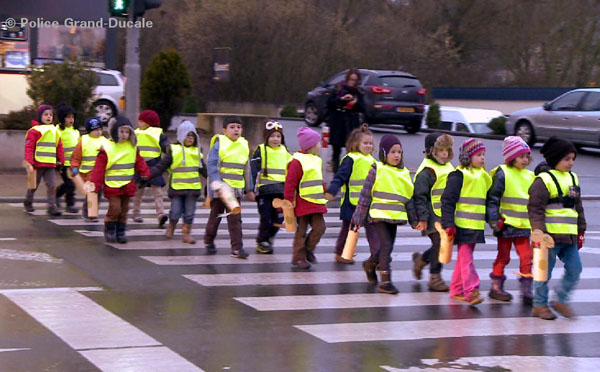 Credit: Police Grand-Ducale
Credit: Police Grand-Ducale
The Luxembourg tradition of Liichtmëssdag, also known as Candlemas, is celebrated on 2 February every year.
Traditionally, in the late afternoon, children carry lit lanterns on sticks and sing the song "Léiwer Herrgottsblieschen", hoping for gifts of sweets. The tradition is based on a mix of religious and pagan customs and stems from Celtic times when farmers would ask the gods for a bountiful season in the fields, across which they would carry lit torches.
The Luxembourgish name "Liichtmëssdag" loosely translates to "day of light" in English ("Liicht" means "light"; "mëss" means "mass"; "dag" means "day").
In addition to the traditional "Léiwer Härgottsblieschen" song, which serves as a reminder of Christ, defined as the light, who brings light in darkness, other songs are sung locally sometimes, as well.
Léiwer Härgottsblieschen, Nik Welter (1929)
Léiwer Härgottsblieschen, gitt ons Speck an Ierbëssen,
Ee Pond, zwee Pond, dat anert Jor, da gitt der gesond.
Loosst déi jong Leit liewen, loosst déi al Leit stierwen.
Kommt der net bal, d’Féiss ginn eis kal;
Kommt der net gläich, da gi mer op d’Schläich;
Kommt der net geschwënn, d’Féiss ginn eis dënn;
Kommt der net gewëss, da kritt Der e Schouss voll Nëss!
An English translation corresponds to:
Dear Blessings of God, give us bacon and peas,
One pound, two pounds, the next year, then you will be healthy.
Let the young people live, and let the old men die.
Do not come near, Our feet are cold.
If you do not come right away, we'll go to the snail.
Do not come soon, Our feet are getting thin.
If you do not know, you will get a shot full of nuts.








